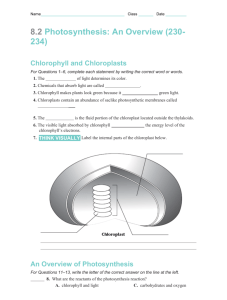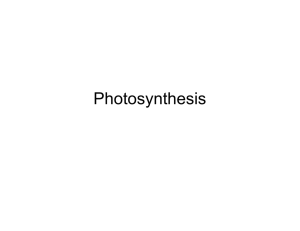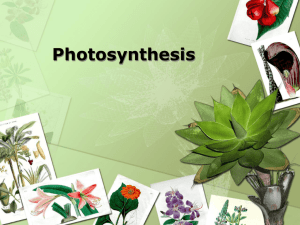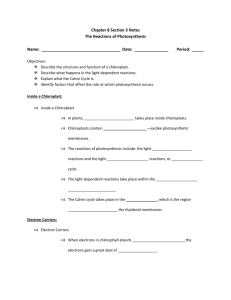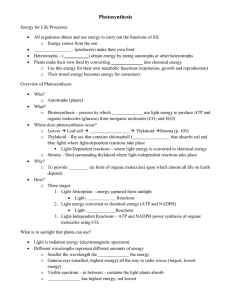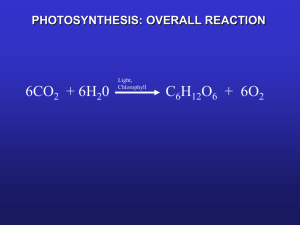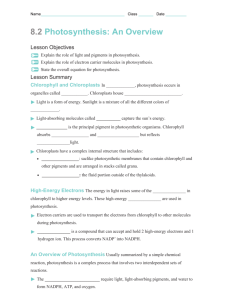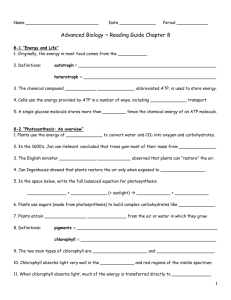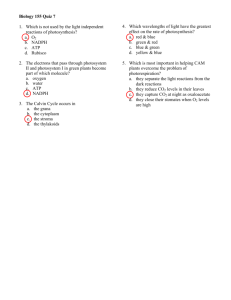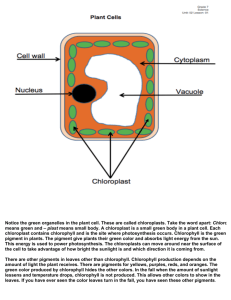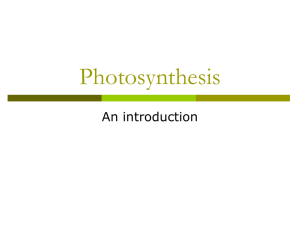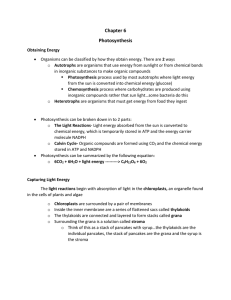Ch 8 Photosynthesis
advertisement
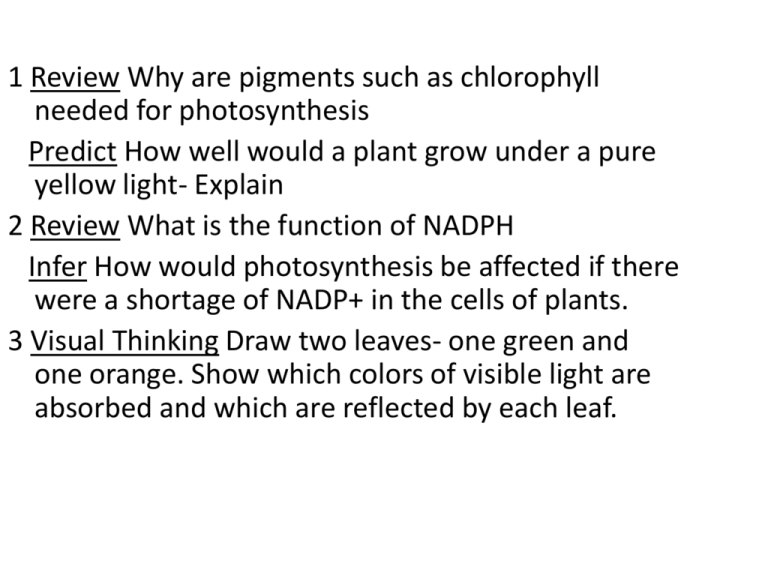
1 Review Why are pigments such as chlorophyll needed for photosynthesis Predict How well would a plant grow under a pure yellow light- Explain 2 Review What is the function of NADPH Infer How would photosynthesis be affected if there were a shortage of NADP+ in the cells of plants. 3 Visual Thinking Draw two leaves- one green and one orange. Show which colors of visible light are absorbed and which are reflected by each leaf. CH 8 PHOTOSYNTHESIS 8.2 Photosynthesis: An Overview Light Energy from the sun travels to Earth in the form of light Sunlight is a mixture of different wavelengths Some are visible to us some are not. Pigments Light absorbing molecules that gather the sun’s energy Chlorophyll Plants primary pigment. Chlorophyll Two types Chlorophyll a and chlorophyll b Absorb blue-violet and red regions of the spectrum They appear green. Carotene Red orange pigment Secondary pigment, chlorophyll hides it most of the year Chlorophyll breaks down earlier in the fall which gives leaves the fall colors. Chloroplasts Organelle where photosynthesis occurs Thylakoids Saclike photosynthetic membranes in chloroplasts Grana Interconnected stacks of thylakoids Stroma Fluid portion outside of the thylakoids. Energy Collection Chlorophyll absorbs light and is transferred to electrons. High-Energy Electrons Are highly reactive and require a special “carrier” Carriers include: NADP+ Accepts and holds two high-energy electrons, along with a hydrogen ion (H+) Turns into NADPH which carries the electrons. Photosynthesis Steps “Plant” absorbs light energy and takes in CO2 and H2 O “Plant” releases O2 and makes sugar (glucose C6H12O6). Photosynthesis involves two sets of reactions Light-dependent reactions Light-independent reactions. Light-Dependent Reactions Use energy from sunlight to produce ATP and NADPH Occurs in Thylakoid Requires water and releases oxygen. Light-Independent Reactions ATP and NADPH molecules produce high-energy sugars from carbon dioxide Light is not needed Occurs OUTSIDE of thylakoid but IN stroma.
